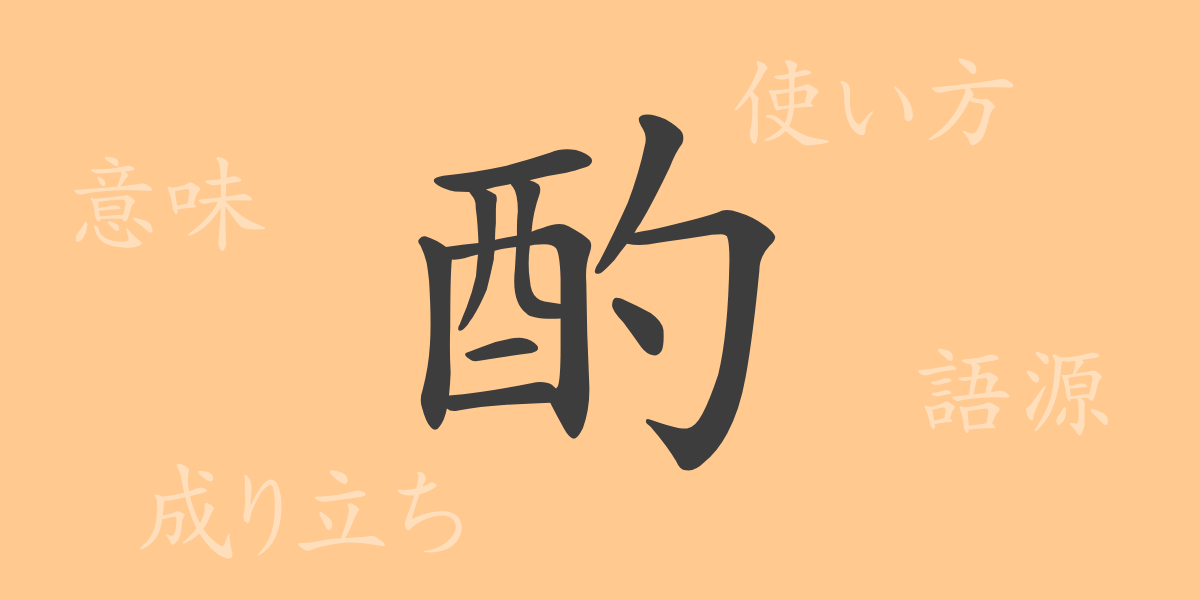The kanji culture deeply rooted in the daily lives of Japanese people weaves many stories through its characters. One such character, “酌(しゃく),” plays an important role in Japan’s traditions and culture. In this article, we will explore the origin, modern usage, idioms, and expressions related to the kanji “酌(しゃく)” to fully understand its significance.
Origin of 酌(しゃく) (Etymology)
The kanji “酌(しゃく)” originated from ancient China and is closely related to the culture of sake. It originally depicted a “hand” pouring “sake,” symbolizing the act of serving and deepening bonds between people. Over time, this character was transmitted to Japan and acquired unique cultural significance.
Meanings and Uses of 酌(しゃく)
The kanji “酌(しゃく)” primarily has two meanings: “to pour sake” and “to consider others’ circumstances.” The former refers to the literal act of pouring sake, while the latter metaphorically means understanding and assisting others by considering their feelings and situations. Common usages include “酌(しゃく)をする” (to pour sake) and “心(こころ)を酌(く)む” (to empathize with someone).
Readings, Stroke Count, and Radical of 酌(しゃく)
The kanji “酌(しゃく)” is noteworthy for its readings and structure.
- Readings: The on’yomi (音読み) is “シャク,” and the kun’yomi (訓読み) is “くむ.”
- Stroke count: “酌(しゃく)” has a total of 10 strokes.
- Radical: The radical is “酉(とりへん),” which relates to alcohol or sake.
Idioms, Phrases, and Proverbs Using 酌(しゃく)
The kanji “酌(しゃく)” appears in various idioms, phrases, and proverbs, reflecting its meanings and usage in Japanese culture and thought.
- 「酌量(しゃくりょう)」 – Considering others’ circumstances or adjusting the amount.
- 「自酌自飲(じしゃくじいん)」 – Pouring sake and drinking it oneself, expressing solitary drinking.
- 「心(こころ)を酌(く)む」 – Empathizing with someone’s feelings.
Conclusion on 酌(しゃく)
The kanji “酌(しゃく)” carries meanings beyond its literal sense, symbolizing consideration in Japanese food culture and human relationships. Understanding the deep compassion and importance of bonds represented by this character can help us build richer relationships.

























